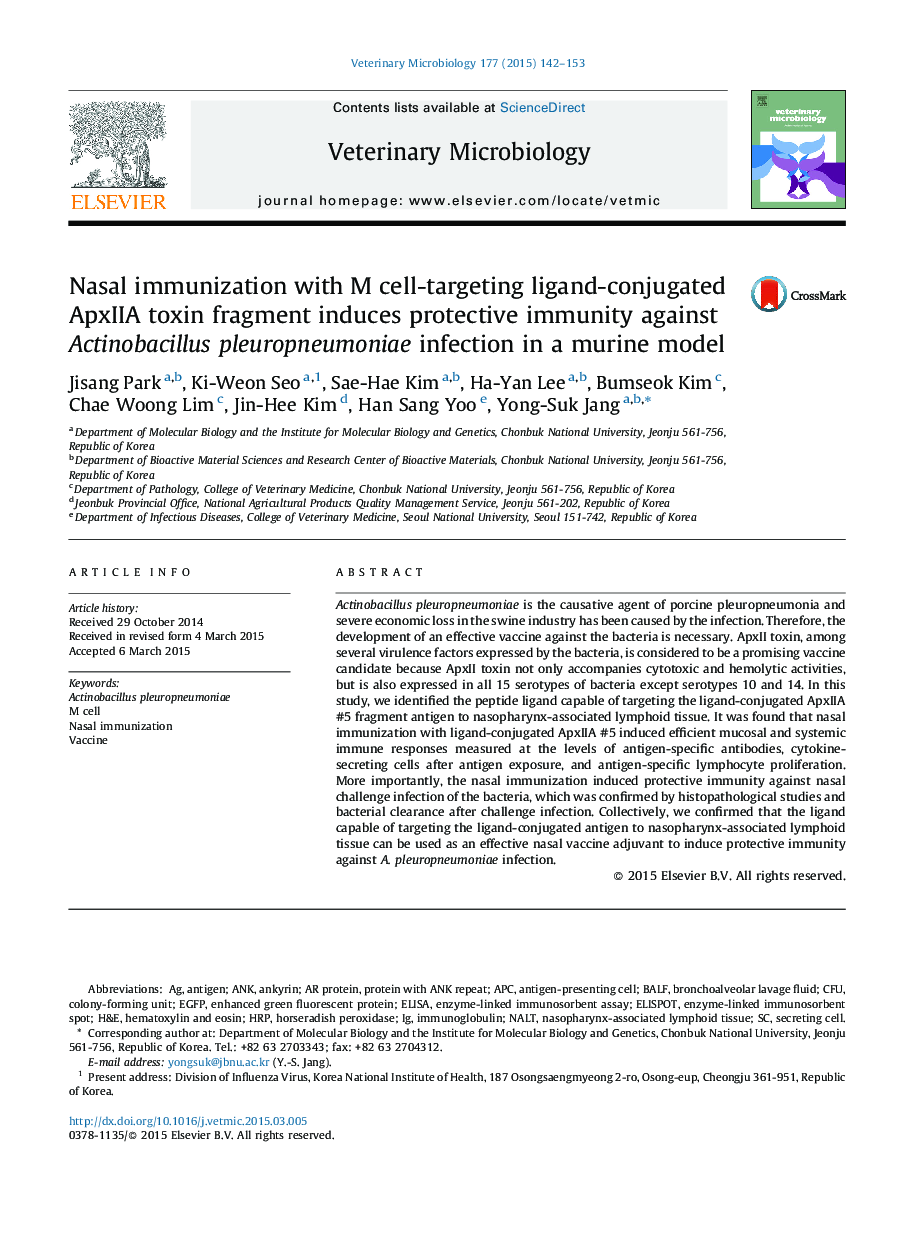| Article ID | Journal | Published Year | Pages | File Type |
|---|---|---|---|---|
| 5799937 | Veterinary Microbiology | 2015 | 12 Pages |
â¢Peptide ligand capable of targeting antigen to nasal lymphoid tissue was identified.â¢Nasal immunization with ligand-conjugated antigen induced efficient immune responses.â¢Immunization induced protective immunity against challenge infection of the bacteria.â¢The targeting ligand can be used as an effective nasal vaccine adjuvant.
Actinobacillus pleuropneumoniae is the causative agent of porcine pleuropneumonia and severe economic loss in the swine industry has been caused by the infection. Therefore, the development of an effective vaccine against the bacteria is necessary. ApxII toxin, among several virulence factors expressed by the bacteria, is considered to be a promising vaccine candidate because ApxII toxin not only accompanies cytotoxic and hemolytic activities, but is also expressed in all 15 serotypes of bacteria except serotypes 10 and 14. In this study, we identified the peptide ligand capable of targeting the ligand-conjugated ApxIIA #5 fragment antigen to nasopharynx-associated lymphoid tissue. It was found that nasal immunization with ligand-conjugated ApxIIA #5 induced efficient mucosal and systemic immune responses measured at the levels of antigen-specific antibodies, cytokine-secreting cells after antigen exposure, and antigen-specific lymphocyte proliferation. More importantly, the nasal immunization induced protective immunity against nasal challenge infection of the bacteria, which was confirmed by histopathological studies and bacterial clearance after challenge infection. Collectively, we confirmed that the ligand capable of targeting the ligand-conjugated antigen to nasopharynx-associated lymphoid tissue can be used as an effective nasal vaccine adjuvant to induce protective immunity against A. pleuropneumoniae infection.
